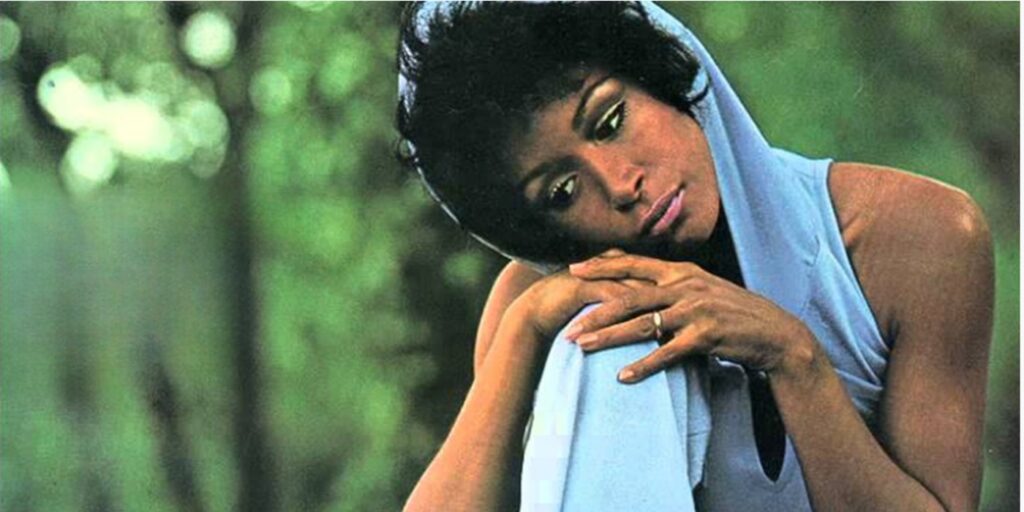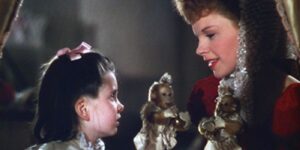
MUSIC LEGEND: “Band of Gold” was written about a gay man being unable to consummate his marriage to a woman
As I’ve noted a number of times over the years (like this piece about Red Reddington on The Blacklist), I don’t think authorial intent is the end all/be all. We don’t have to interpret a writing the way that the author intended. That said, the authorial intent is still interesting, of course.
In the case of “Band of Gold,” the hit 1970 song by Freda Payne, there is an interesting question of what the song is about, really.
Obviously, the song is about a woman whose marriage was never consummated, and now that it is over, all she is left with is “a band of gold.”
So check it out…
You took me from the shelter of my mother, I had never known
Or loved any other
We kissed after taking vows
But that night on our honeymoon
We stayed in separate rooms
I wait in the darkness of my lonely room
Filled with sadness, filled with gloom
Hoping soon
That you’ll walk back through that door
And love me like you tried before
Since you’ve been gone
All that’s left is a band of gold
All that’s left of the dreams I hold
Is a band of gold
And the dream of what love could be
If you were still here with me
That sure supports the idea of the song being about a guy being unable to consummate the marriage for some reason, and people have interpreted it as him struggling with his sexuality, and thus being unable to have sex with his wife.
The iconic Lamont Dozier, who produced the song, said that that WAS the intent of the song, explaining to Songfacts:
Songfacts: In the song “Band Of Gold,” what is going on lyrically?
Dozier: The story was, the girl found out this guy was not all there. He had his own feelings about giving his all. He wanted to love this girl, he married the girl, but he couldn’t perform on his wedding night because he had other issues about his sexuality. I’ll put it that way.
It was about this guy that was basically gay, and he couldn’t perform. He loved her, but he couldn’t do what he was supposed to do as a groom, as her new husband. I know it sounds simple but that’s where the idea came from.
Songfacts: Did you guys flesh out that story before condensing it into the lyric?
Dozier: Exactly. We’d talk about a lot of music. What’s happening here? What are these chords saying? Either we would do it that way or we would say, “What is this title about? What’s the story going to be in ‘Band Of Gold’? She’s married, she’s got the ring, but what’s happening in the story now to make it interesting?”
That’s how that came about. We said, “Let’s make the guy gay and he can’t perform. He loves her but he has these other issues.” That’s how we developed it.
In the documentary, Band of Gold – The Invictus Story, however, Ron Dunbar, the song’s co-writer, noted: “They said this song is a smash in the gay community. And I said, gay community? They said, yeah man, it’s a smash. And I says, why is it that? And they said, well it’s what the lyrics are saying. She said the guy couldn’t make love to her so they figured he had to be gay! And I said oh no! And I remembered when they said that to me and I listened back to the song and there was a part in there… because I remembered when we were editing that tune, it was too long, so we had to cut a section out of the tune so the section we cut out of the song really brought the whole song [story] together.”
And sure enough, Dunbar is correct that the original version of the song had the following lyric cut, “And the memories of our wedding day, and the night I turned you away,” as well as “Each night, I lie awake and I tell myself, the vows we made gave you the right, to have a love each night.”
So, obviously, as written, the song was about a young woman who didn’t allow her husband to have sex with her on their honeymoon, so he left her.
So I think it is fair enough to say that the song was not WRITTEN to be about a gay man being unable to consummate a marriage, but at the same time, obviously, the lyrics WERE removed from the song, and it is very possible that Dozier decided to do so because he DID want that interpretation of the song to be the “true” one.
So I think the legend is…
STATUS: False in terms of the original writing, but apparently true in the finished song
Be sure to check out my archive of TV Legends Revealed for more urban legends about the world of TV.
Feel free (heck, I implore you!) to write in with your suggestions for future installments! My e-mail address is bcronin@legendsrevealed.com (or you can use brian@poprefs.com).









